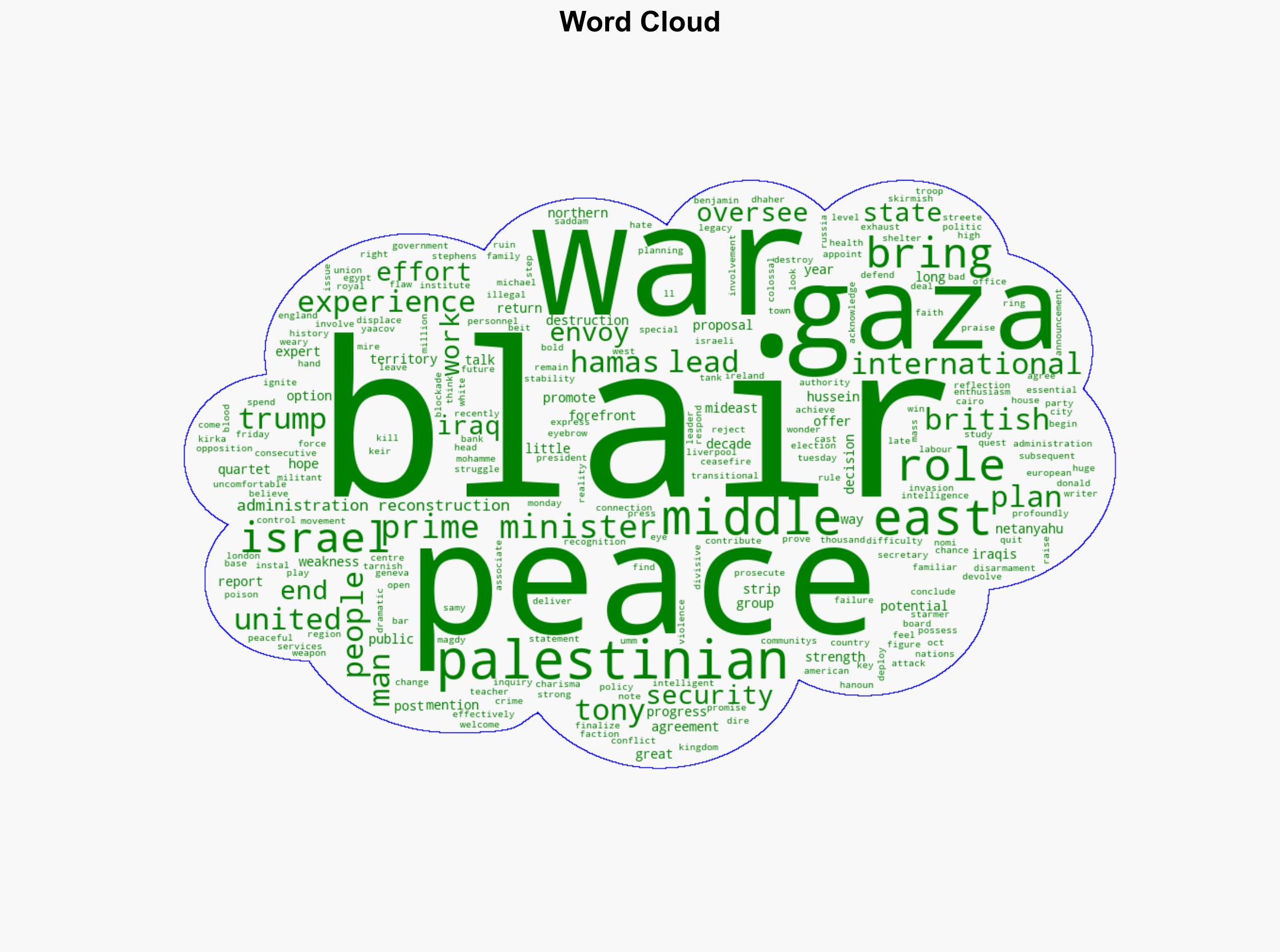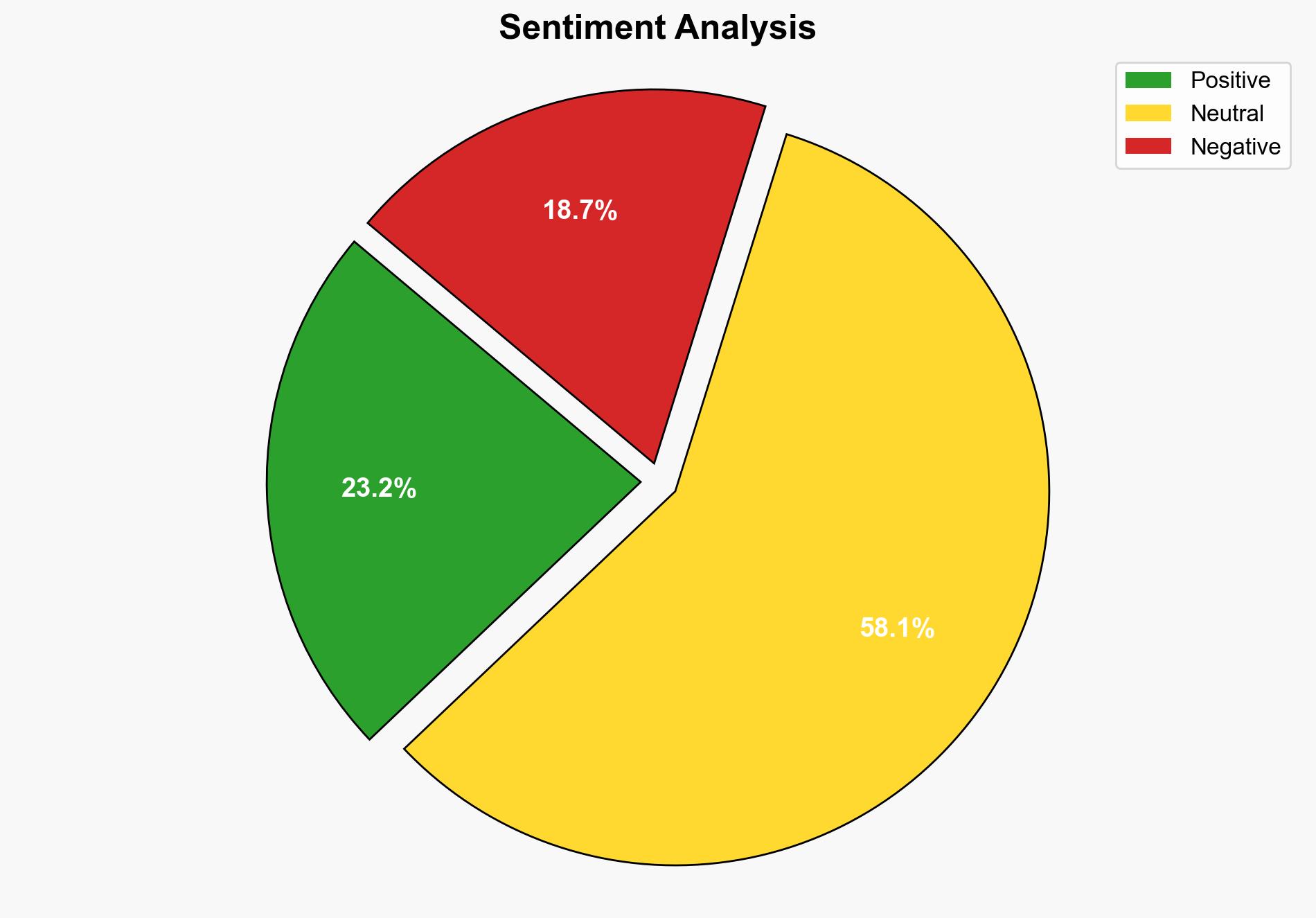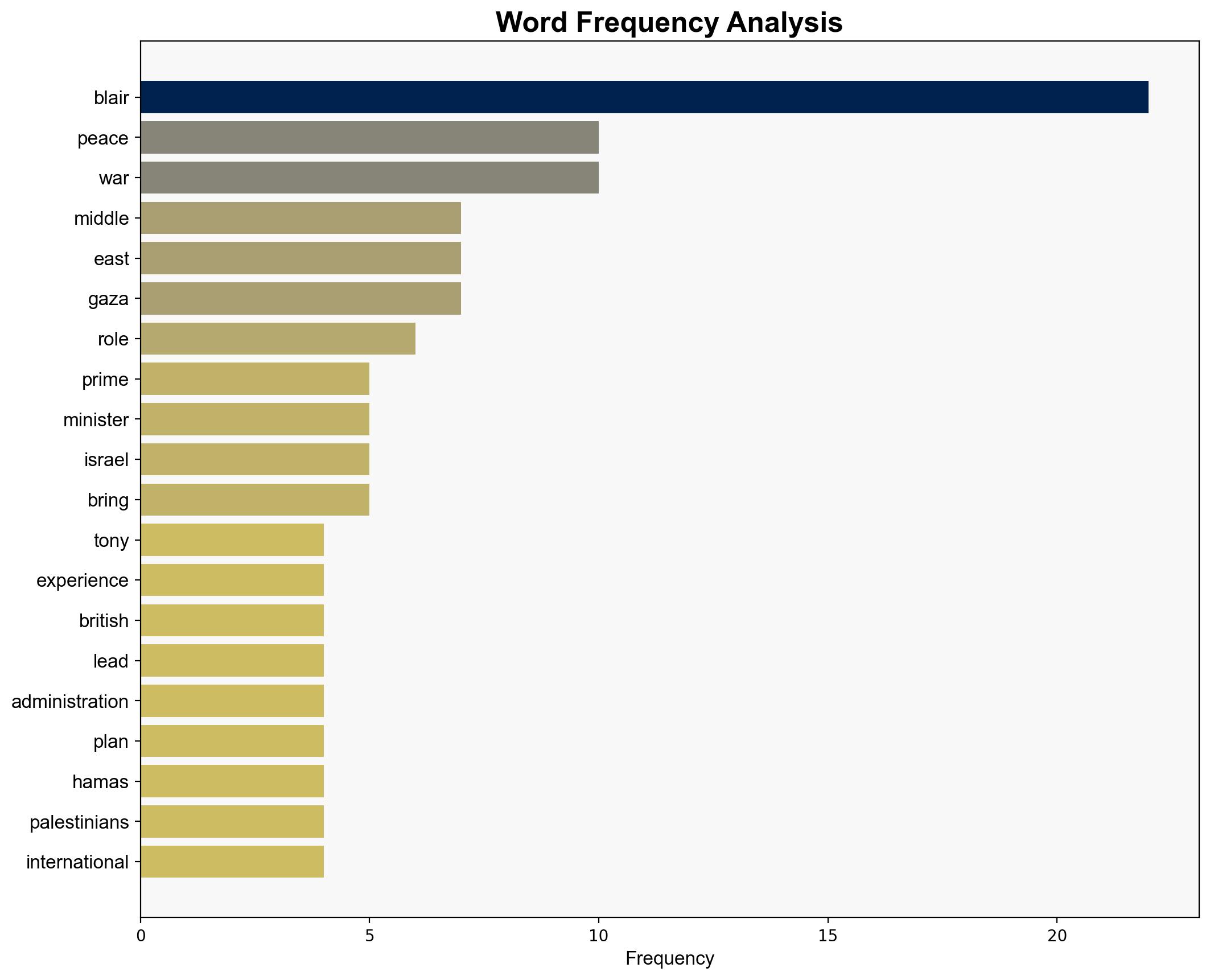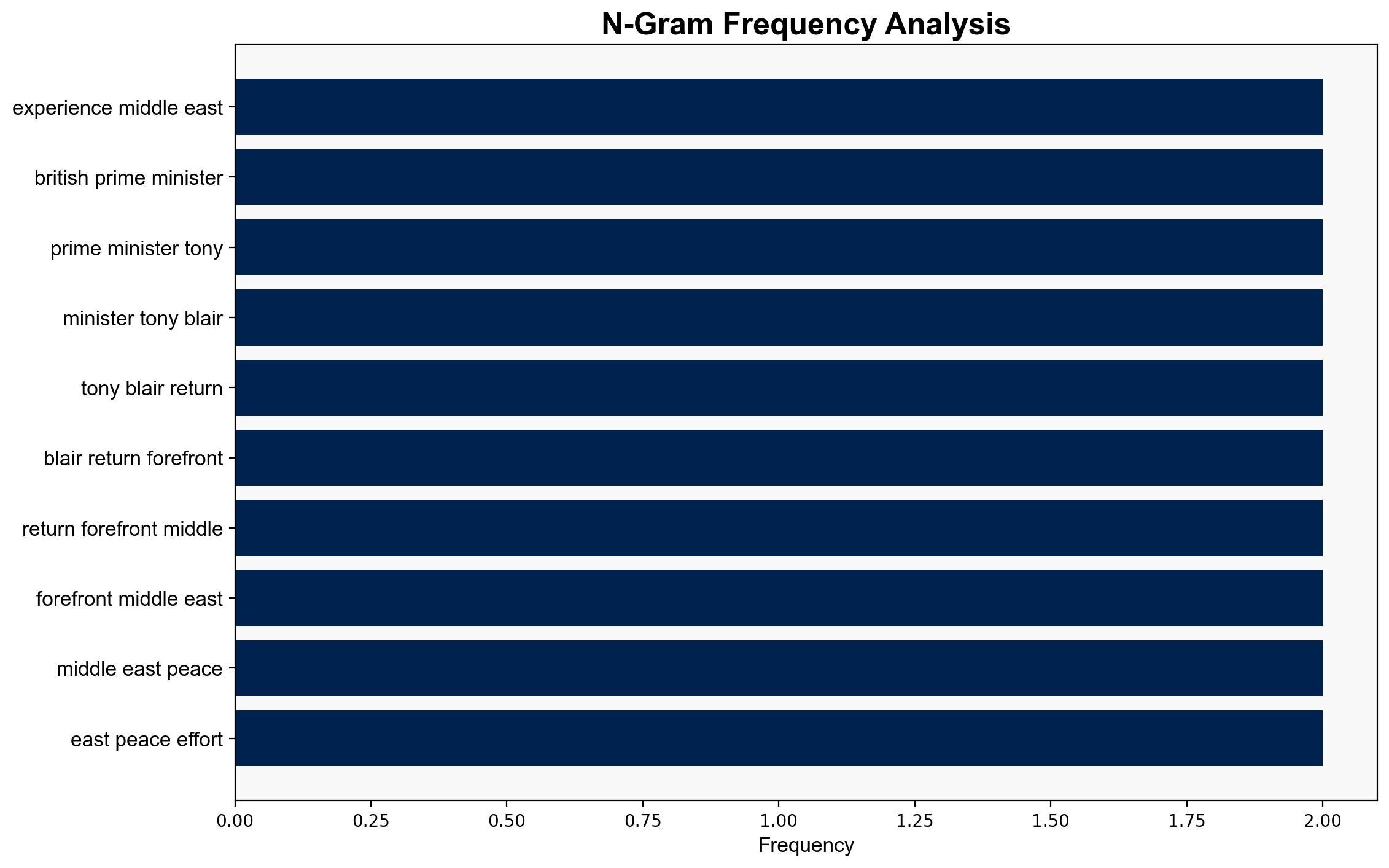Tony Blair’s long experience in the Middle East is both his strength and his weakness – ABC News
Published on: 2025-09-30
Intelligence Report: Tony Blair’s long experience in the Middle East is both his strength and his weakness – ABC News
1. BLUF (Bottom Line Up Front)
Tony Blair’s re-engagement in the Middle East peace process presents both opportunities and challenges. The most supported hypothesis is that his experience and connections can facilitate diplomatic progress, but his controversial past may undermine his effectiveness. Confidence level: Moderate. Recommended action: Monitor Blair’s influence on the peace process and prepare contingency plans for potential backlash.
2. Competing Hypotheses
1. **Blair’s Experience as an Asset**: Blair’s extensive experience and diplomatic connections will enable him to effectively mediate and contribute to the Middle East peace process, leveraging his past successes in Northern Ireland as a framework.
2. **Blair’s Controversial Legacy as a Liability**: Blair’s involvement in the Iraq War and subsequent controversies will overshadow his efforts, leading to skepticism and resistance from key stakeholders, thereby limiting his ability to influence outcomes.
Using the Analysis of Competing Hypotheses (ACH) 2.0, the first hypothesis is better supported by evidence of his past diplomatic successes and current involvement in high-level discussions. However, the second hypothesis is reinforced by historical public opinion and political opposition.
3. Key Assumptions and Red Flags
– **Assumptions**: Blair’s diplomatic skills are assumed to be transferable to the current Middle East context. It is also assumed that stakeholders will prioritize peace over past grievances.
– **Red Flags**: Blair’s divisive reputation within the Labour Party and among international actors could hinder consensus-building. The lack of explicit endorsement from key Middle Eastern leaders is a potential blind spot.
– **Cognitive Bias**: Confirmation bias may lead to overemphasis on Blair’s past successes while underestimating the impact of his controversial legacy.
4. Implications and Strategic Risks
– **Geopolitical Risks**: Blair’s involvement could polarize international actors, affecting alliances and regional stability.
– **Psychological Risks**: Public and political opposition could escalate, leading to protests or diplomatic pushback.
– **Cascading Threats**: Failure to achieve peace could exacerbate existing tensions, leading to further conflict and humanitarian crises.
5. Recommendations and Outlook
- Engage with regional stakeholders to assess their perceptions of Blair’s involvement and address concerns proactively.
- Develop a communication strategy to manage public opinion and mitigate backlash.
- Scenario Projections:
- Best Case: Blair’s involvement leads to a breakthrough in peace negotiations, stabilizing the region.
- Worst Case: Blair’s presence exacerbates tensions, leading to increased conflict and diplomatic isolation.
- Most Likely: Blair’s efforts result in incremental progress, but significant challenges remain due to his controversial past.
6. Key Individuals and Entities
– Tony Blair
– Benjamin Netanyahu
– Donald Trump
– Keir Starmer
– Nomi Bar Yaacov
– Michael Stephens
7. Thematic Tags
national security threats, geopolitical strategy, diplomatic mediation, Middle East peace process





